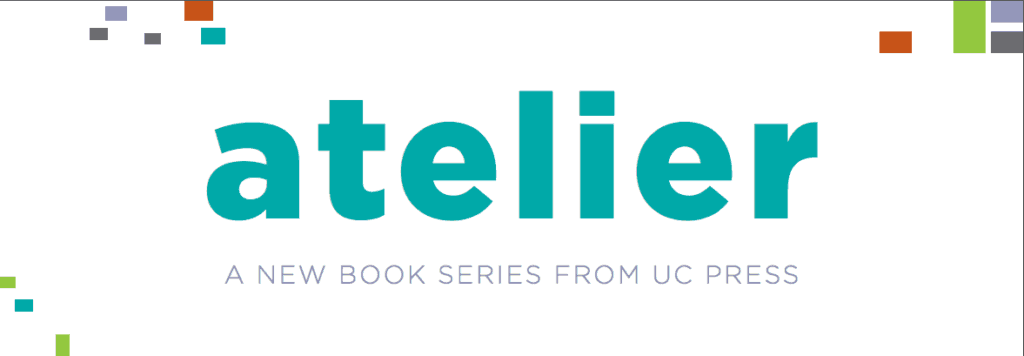Edited by Kevin Lewis O’Neill, Atelier is a book series in anthropology that takes a ground-up approach to the acquisition and publication of new ethnographic works. Curating a cohort of scholars committed to the idea that ethnographic writing is itself a form of intellectual work, Atelier enables collaboration at each stage of a book’s development, from the earliest draft through publication, with constructive engagement from peers and publishers. Learn more about the series.
Submissions for 2021 closed at the beginning of June, and we are now proud to announce our newest authors:
Alessandro Angelini, Johns Hopkins University
Model Favela: Youth, Second Nature, and Rio de Janeiro
Model Favela is an ethnography about the social life of imagination. The book explores how residents of self-built urban settlements, or favelas, have become bearers of popular culture while their communities, widely perceived as disordered territories, were mapped and reshaped under the sign of social development. I study this world and its attendant contradictions alongside a youth collective. These youth reflect on everyday experience through a role-playing game set in a hand-built miniature model of Rio. Girded by a grassroots philosophy of how possibility resides within given reality, their form of serious play lays bare the history of segregation and violence in urban Brazil, even as youth leverage this history toward cosmopolitan mobility.
Tracie Canada, University of Notre Dame
Tackling the Everyday: Race, Family, and Nation in Big-Time College Football
Tackling the Everyday is an ethnographic study of Black college football players. The book tells how Black men, who make up the overwhelming majority of these players, navigate the institutional systems and quotidian spaces that order, discipline, and enact violence against them. Through an analysis of college athletes, the lived experience of Blackness, and two notions of care, I argue that Black players successfully tackle the everyday by reimagining kinship relations. Because of and in spite of the normative prioritization of the football team as family, these athletes instead build relationships with, rely on, and care for other Black players and their own extended family kin, specifically their moms.
Duana Fullwiley, Stanford University
Tabula Raza: Mapping Race and Human Diversity in American Genome Science
Genetic material collected for studies on the intersections of race, health and ancestry have seeded new markets and spawned cultural shifts in how people approach each of these concepts. Tabula Raza traces how geneticists working in the decade following the mapping of the Human Genome tried to amend past racial harms and redefine the race concept’s limitations by reframing it in the liberalizing language of genetic ancestry. In the process, ancestry transformed from an older notion of a genealogical source within families to a statistical phenomenon that does not actually need ancient family lines to function. This solidified race as an idea and genetic ancestry as a shared and marketable entity.
I tell this story through several principal protagonists: some human, some conceptual, some biochemical. They all bear the birthmarks of a troubled dynamic I call captive inclusion. Inclusion in the political sense has a captive property. It also has historical ties to other forms of captivity and labor that have always already been racialized on U.S. soil. I will explore these connections in a theoretical framework that inscribes race on the “blank slates” of so-called virgin lands, on African and indigenous people in the Americas and on the once raceless human genome itself. In what I call instances of a literal “raced slate,” or tabula raza, I map the processes that permit a seemingly inclusive imprint of race on geographical terrains, as well as within the digital tables and cells that organize genomic data in labs.
2020 Authors
Sahana Ghosh, National University of Singapore
Alix Johnson, University of Florida
Keisha-Khan Perry, University of Pennsylvania
Kaya Williams, Harvard University
2019 Authors
Peter Benson, University of Delaware
Darcie DeAngelo, University of Oklahoma
Erica C. James, Massachusetts Institute of Technology
Emrah Yildiz, Northwestern University
2018 Authors
Lauren Coyle Rosen, Princeton University
Laurie Denyer Willis, University of Edinburgh
Namita Vijay Dharia, Rhode Island School of Design
Marina Welker, Cornell University
2017 Authors
Sarah Besky, Cornell University
Nomi Stone, University of Texas at Dallas
Christien Tompkins, Rutgers University
2016 Authors
Jacob Doherty, University of Edinburgh
Jatin Dua, University of Michigan, Ann Arbor
Anthony W. Fontes, American University
Kathryn Mariner, University of Rochester
